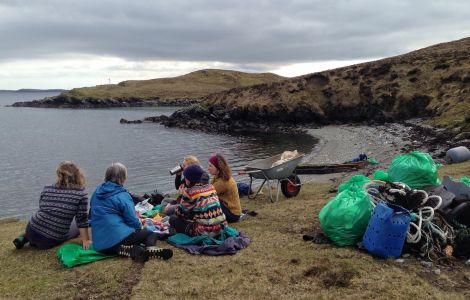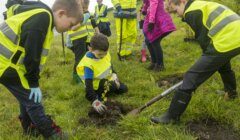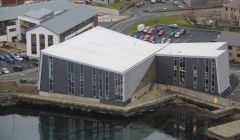Health / Wellbeing the focus of possible collaboration between amenity trust and NHS
POSITIVE discussions have been held between local health officials and Shetland Amenity Trust around a possible collaboration on ways to improve people’s physical and mental wellbeing.
The talks stem from the trust’s recently published strategic plan, which includes a section on health and wellbeing.
Amenity trust chief executive Mat Roberts said working with “traditional suppliers of health and wellbeing services to ensure that they wrap what we do into their programmes, and we wrap what they do into our programmes” was part of the thinking behind the plan.
The talks were mentioned at a meeting last week of Shetland’s integration joint board (IJB), which brings together NHS Shetland and Shetland Islands Council on health and social care, during a discussion on mental health.
Referring to waiting times for mental health therapy, councillor Emma Macdonald questioned what extra help could be offered to people awaiting treatment.
“Is there anything more that we can do that can support people in the meantime?” she asked.
A temporary therapist is being recruited to help manage a backlog, according to a report presented to the IJB, while clinical psychology is “proving to be more difficult to recover, with a single-handed practitioner continuing to receive referrals” in addition to existing cases.
IJB chief officer Simon Bokor-Ingram, who is director of community health and social care for NHS Shetland, said there was a “real opportunity” to focus more on social prescribing, which takes a holistic approach to health and wellbeing.
“How can we support people…into social activities that get people back into interacting with other folk?” he said.
There was widespread media coverage in 2018 after NHS Shetland started prescribing ‘nature’ in conjunction with RSPB Scotland to promote the benefits of being outside.
Bokor-Ingram said one question is how people can be supported into taking part in activities.
Become a member of Shetland News
Roberts said there are amenity trust-related opportunities for bettering physical and mental health, like the countryside, access routes, footpaths, visiting the museum and taking part in community activities like Da Voar Redd Up.
“We have a health and wellbeing priority, which in essence is to recognise the health and wellbeing aspects of the services that we provide, and work with the traditional suppliers of health and wellbeing services to ensure that they wrap what we do into their programmes, and we wrap what they do into our programmes,” Roberts explained.
“It’s really just saying that we’re not just here to conserve objects in the museum and collect documents. It’s not an academic exercise. It’s an exercise that brings multiple benefits to individuals in the health and wellbeing space, and what can we do alongside them, because they’re doing all sorts of work around physical and mental health. What can we do together on things like that?”
He said that conversations with NHS Shetland and the IJB have been “really good”.
Roberts added that the trust already hosts dementia classes every week in the museum, while it has also been working with career pathway workers around “first steps into employment for people coming out of various different positions of disadvantage”.
Activities like these “gets [people] out of their homes, gets them talking to people, gets them an opportunity to share their story”, he said.
The amenity trust’s strategic plan notes that one in three people in Shetland experiences mental ill health or distress each year.
At last week’s IJB meeting board member Shona Manson also highlighted the work being done by NHS Shetland’s health improvement team on a new programme that mixes exercises, education and group activities.
The free programme consists of eight fortnightly sessions held over the space of four months, and they are being delivered at local health centres.
The aim is to help people make “lifelong, sustainable healthy changes” in areas beyond just their weight.
Bokor-Ingram also confirmed that two community psychiatric nurses were heading off for training in cognitive behavioural therapy.
Become a member of Shetland News
Shetland News is asking its many readers to consider paying for membership to get additional features and services: -
- Remove non-local ads;
- Bookmark posts to read later;
- Exclusive curated weekly newsletter;
- Hide membership messages;
- Comments open for discussion.
If you appreciate what we do and feel strongly about impartial local journalism, then please become a member of Shetland News by either making a single payment, or setting up a monthly, quarterly or yearly subscription.







































































